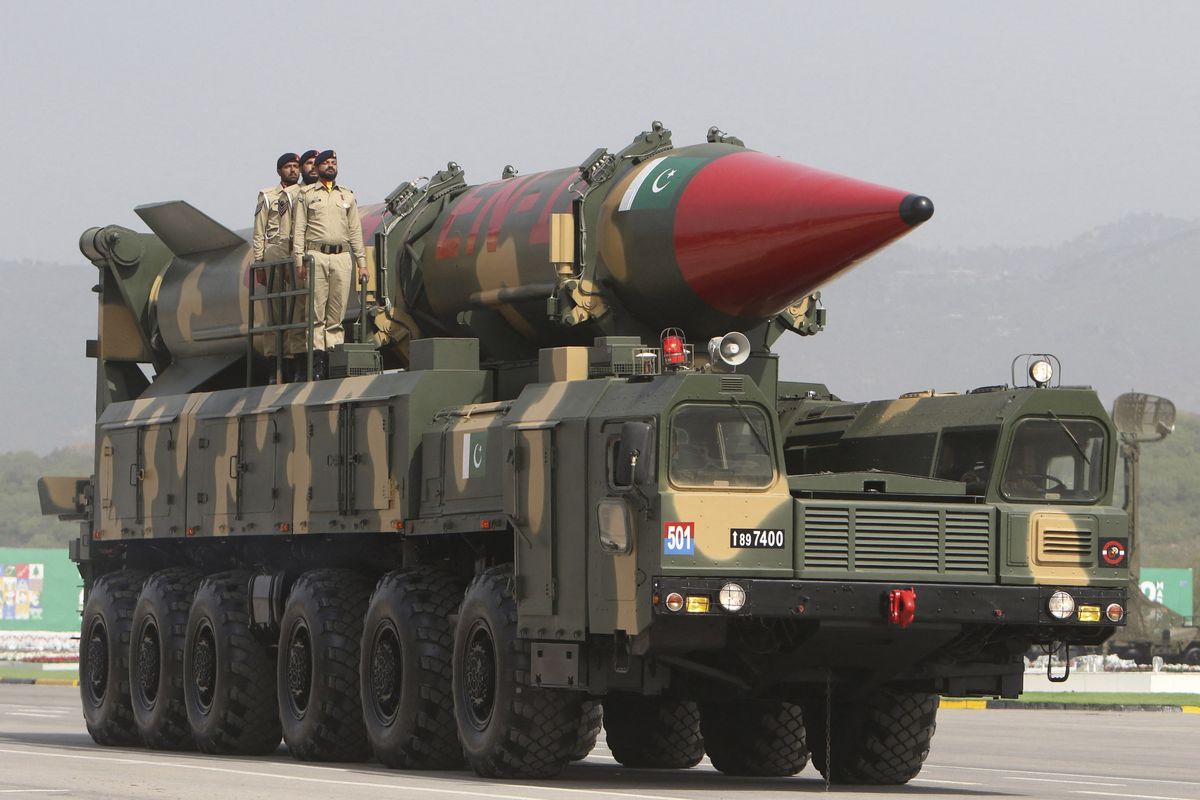US imposes sanctions on entities linked to Pakistan's missile program
Pakistan calls sanctions 'unfortunate', accuses US of 'double standards'

Gaitty Ara Anis
Correspondent-USA
Gaitty Ara Anis is a seasoned multimedia journalist based in Washington, D.C., she specializes in digital content creation, including writing and video production. Currently, she represents Nukta as its correspondent in the USA. She has been previously associated with Voice of America, Dawn, CNBC, PTV World and Geo News over the past twenty years.

The United States has announced sanctions on four entities it says are contributing to Pakistan's ballistic missile program, the Department of State said Wednesday.
The sanctions target “proliferators of weapons of mass destruction and their means of delivery,” according to the statement.
The Islamabad-based National Development Complex (NDC), which oversees the country's ballistic missile program, is among the entities sanctioned for acquiring materials to advance long-range missile development, the statement said.
Three suppliers — Karachi-based Akhtar and Sons Private Limited, Affiliates International, and Rockside Enterprise — are also included on the list.
Interestingly, this is not the first time that Akhtar and Sons and Affiliates International were hit by sanctions from the US. They were slapped with sanctions in 2023 as well.
State Department spokesperson Matthew Miller said in a statement that the sanctions were imposed under an executive order.
The sanctions freeze any U.S. property belonging to the targeted entities and bars Americans from doing business with them.
A State Department factsheet said the NDC has sought to obtain components for the country's long-range ballistic-missile program and missile-testing equipment.
It said the NDC "is responsible for the development of Pakistan's ballistic missiles," including the Shaheen family of missiles.
The Bulletin of the Atomic Scientists research organization says the Shaheen series of missiles is nuclear-capable.
Pakistan conducted its first nuclear-weapons test in 1998, becoming the seventh country to do so. The Bulletin estimates Pakistan's arsenal at about 170 warheads.
Islamabad has refused to sign the Non-Proliferation Treaty, the cornerstone of the international system designed to prevent the spread of nuclear weapons.
'Double standards'
In response, Pakistan called the sanctions “unfortunate” and emphasized its missile program is intended to preserve regional stability.
“Pakistan’s strategic capabilities are meant to defend its sovereignty and preserve peace and stability in South Asia,” the Foreign Ministry said in a statement.
The ministry said the sanctions undermine peace and security by “accentuating military asymmetries” in the region.
“Pakistan’s strategic program is a sacred trust bestowed by 240 million people upon its leadership. The sanctity of this trust, held in the highest esteem across the entire political spectrum, cannot be compromised,” the ministry added.
The Foreign Ministry also criticized the inclusion of private commercial entities in the sanctions, calling it baseless and discriminatory.
“Similar listings of commercial entities in the past were based on mere doubts and suspicion without any evidence whatsoever,” the statement said.
Pakistan accused the U.S. of applying “double standards” in enforcing non-proliferation norms, claiming licensing requirements for advanced military technology were waived for other countries in the past.
“These discriminatory practices not only undermine the credibility of non-proliferation regimes but also endanger regional and international peace and security,” the ministry said.
State-owned NDC
The NDC, located in the Kala-Chitta Mountain Range west of Islamabad, is a key hub for Pakistan’s missile development. Established in the mid-1990s, the complex initially focused on short-range ballistic missiles like Gazhnavi and Shaheen-1, leveraging Chinese technology.
Over the years, the NDC has expanded significantly, particularly its central TEL assembly area, which now includes a TEL truck assembly plant and high-bay assembly halls for integrating missile compartments.
*With additional input from Reuters







Comments
See what people are discussing